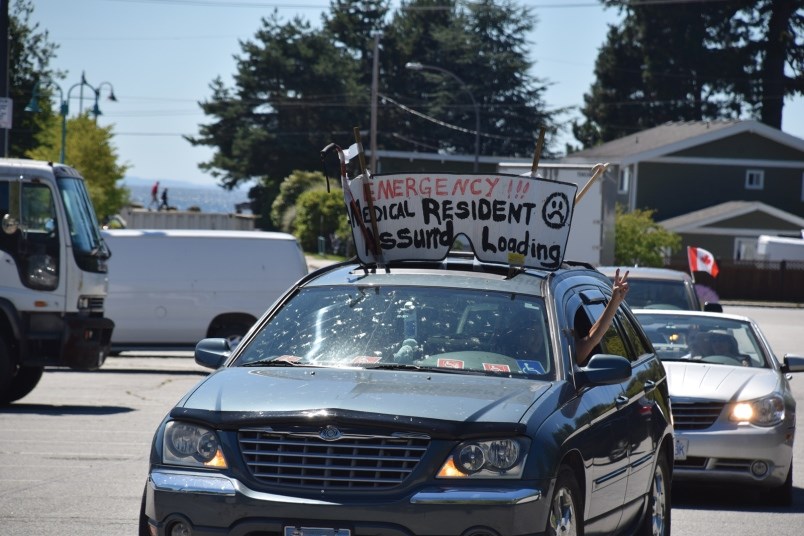Minister of Public Safety and Solicitor General Mike Farnworth has changed the ministerial order that directed BC Ferries to give priority to residents and essential goods and services during the COVID-19 state of emergency.
The new order drops resident priority and adds a clause to “ensure BC Ferries can implement all procedures necessary to provide priority medical-assured loading on the first available vessel for any individual, their vehicle and an escort.”
The original wording in Ministerial Order 84, first issued in March, was that BC Ferries “must implement all procedures necessary to ensure priority loading on ferries for the following: vehicles carrying essential goods and supplies; residents of ferry sailing destinations.” There was no mention of travel for medical purposes.
Farnworth confirmed in a July 30 release that the revised order removes the requirement to give priority access for passengers sailing to their primary residence.
“These new provisions will ensure that medical-assured loading is protected for people travelling by ferry for medical treatment. BC Ferries will also continue to give priority to vehicles carrying essential goods and supplies, and will need to consult the Province before changing or varying minimum ferry service levels,” Farnworth said in a July 30 release.
Both Powell River-Sunshine Coast MLA Nicholas Simons and BC Ferries CEO Mark Collins had approached the province calling for an end to resident priority.
“There’s been a major impact on both tourists and residents who are all frustrated by a system that isn't working. But the people who suffer most are the people booked for medical appointments,” Simons told Glacier Media in mid-July. “It's a terrible system, and until we can get a better system, [let's] ensure the medical travellers get on.”
According to the ministry, people who need priority loading for medical treatment “must provide a doctor’s letter indicating the individual requires medical-assured loading for treatment at check-in, as well as a completed Travel Assistance Program (TAP) form.
“The doctor’s letter does not require a specific date or time, or number of occasions the person travelling requires medical-assured loading to receive medical treatment, but may specify a period of time of up to one year from the date of the letter within which the individual requires medical-assured loading.”
Transportation Minister Claire Trevena said the government expects BC Ferries to put the public interest first and to continue monitoring demand and ensure adequate capacity as demand increases.
“We introduced these measures, with the public interest in mind, at the beginning of the pandemic when ferry routes were significantly reduced. We wanted to ensure people could get home and to help ensure essential services for remote communities were maintained,” Trevena said.



